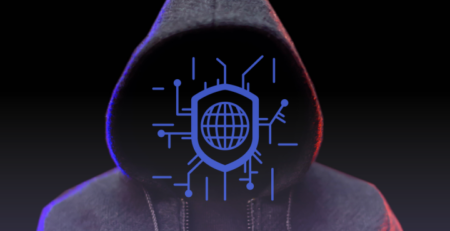Overview of Cybersecurity Regulations in Cameroon
The importance of cybersecurity in Cameroon has steadily increased in recent years, driven by the country’s growing reliance on digital technology across various sectors. Digitalization offers numerous advantages, including improved efficiency and enhanced connectivity, but it also exposes individuals, businesses, and governmental institutions to systemic vulnerabilities. Cyber threats, ranging from data breaches and identity theft to ransomware attacks, pose significant risks to the confidentiality, integrity, and availability of critical information.
In Cameroon, the rapid shift towards digital platforms has underscored the necessity for effective cybersecurity measures. As more citizens engage in online transactions and services, the demand for robust safeguards against cyber threats has become imperative. The risks are not only financial but also encompass reputational damage and potential disruptions to essential services. These challenges necessitate a comprehensive understanding of cybersecurity, particularly within the context of national development and technological advancement.
The Cameroonian government, recognizing these escalating risks, has begun to prioritize the establishment of a solid regulatory framework aimed at enhancing cybersecurity across all sectors. This framework seeks to protect individuals and organizations from cyber-related threats while also fostering a secure environment for the growth of digital innovation. Additionally, it emphasizes collaboration among government agencies, private sector stakeholders, and civil society organizations to effectively address the multifaceted nature of cybersecurity challenges.
Hence, as Cameroon continues its digital transformation, understanding the importance of cybersecurity becomes crucial. Stakeholders must remain vigilant in identifying potential threats and engaging actively in compliance with legal and regulatory measures. By establishing a culture of cybersecurity awareness, Cameroon can better position itself to mitigate risks and capitalize on the advantages of a digitally connected society.
Key Cybersecurity Regulations in Cameroon
In recent years, Cameroon has made significant strides in establishing a robust legislative framework to address the growing challenges posed by cyber threats. Central to this framework is the 2010 Cybersecurity Law, which serves as the cornerstone for the country’s efforts to enhance its cybersecurity practices and policies. This law provides a comprehensive approach to managing data protection, privacy issues, and cybersecurity measures. It outlines the responsibilities of both government agencies and private entities in ensuring the security of information systems and data used across various sectors.
The 2010 Cybersecurity Law specifically targets issues such as unauthorized access to information systems, data breaches, and the critical infrastructure necessary for safeguarding sensitive information. Alongside this, the law mandates the establishment of a National Agency for Cybersecurity, which is tasked with overseeing the implementation of cybersecurity policies and coordinating responses to cyber incidents. This agency is crucial for fostering collaboration between public and private sector stakeholders in the fight against cybercrime.
Furthermore, amendments introduced in subsequent years have further strengthened the legal framework governing cybersecurity in Cameroon. Notable updates include provisions that emphasize the importance of public awareness, training, and capacity building related to cybersecurity practices. The government has recognized the necessity of educating citizens and organizations on the inherent risks and best practices for safeguarding digital assets.
Additional frameworks, such as data protection laws, have been established to complement the Cybersecurity Law. This includes provisions for the proper handling and processing of personal data, ensuring that individuals’ privacy rights are protected in the digital environment. By creating a cohesive system of regulations that address cybersecurity and data protection, Cameroon aims not only to safeguard its digital infrastructure but also to foster a secure environment for economic growth and innovation.
Required Security Measures Under Cameroonian Law
In an era where digital threats are increasingly sophisticated, Cameroonian law mandates a series of security measures aimed at protecting sensitive information and mitigating cyber risks. Organizations operating within Cameroon must adhere to specific protocols that encompass technical, administrative, and physical safeguards. These measures are crucial for enhancing the security posture of businesses and ensuring compliance with national regulations.
One of the primary technical safeguards is the implementation of robust cybersecurity systems. These systems should include firewalls, intrusion detection systems, and encryption protocols to protect data in transit and at rest. Regular software updates and patch management are also essential to safeguard against vulnerabilities that cybercriminals might exploit. Moreover, organizations are encouraged to perform periodic risk assessments to identify and address potential threats effectively.
On the administrative side, organizations are required to establish comprehensive data protection policies and procedures. This includes appointing designated personnel responsible for overseeing cybersecurity efforts, ensuring that staff undergo regular training on security best practices, and enforcing strict access controls to sensitive information. Regular audits and monitoring of these policies are essential to evaluate their effectiveness and compliance with legal requirements.
In addition to technical and administrative measures, physical security is also paramount. Organizations must secure their facilities to prevent unauthorized access to critical systems and data. This can be achieved through controlled access points, surveillance systems, and security personnel. Furthermore, facility management practices should encompass disaster recovery and business continuity planning to ensure resilience against potential cyber incidents.
By adhering to these required security measures outlined under Cameroonian law, organizations can not only protect their sensitive information but also contribute to the broader effort of enhancing cybersecurity across the nation.
Reporting Obligations for Cybersecurity Breaches
In Cameroon, organizations are mandated to adhere to specific reporting obligations following a cybersecurity breach. These obligations are crucial for ensuring the safety and integrity of information systems, as well as for maintaining public trust in electronic transactions and data security. Under the prevailing legal framework, organizations must promptly report incidents involving cybersecurity breaches to the appropriate authorities, thereby contributing to a more robust cybersecurity posture across the nation.
The timelines for reporting a cybersecurity incident are often dictated by the severity and nature of the breach. Organizations must notify the designated authorities as soon as they become aware of a breach, ideally within 72 hours. This urgency is imperative as it enables authorities to initiate appropriate responses, potentially limiting the extent of harm incurred by affected individuals or entities. The early reporting of a breach facilitates timely investigation and remediation, consequently minimizing lasting damages.
The report itself should be formatted precisely to meet regulatory standards, ensuring that all relevant details are included, such as the nature of the incident, the data involved, and the measures taken in response. The information must be shared with the Cybersecurity Agency of Cameroon or any other specified regulatory body tasked with overseeing cyber incidents. Organizations should develop an internal protocol that designates specific personnel responsible for managing incident reports, thus reinforcing accountability.
In addition to fulfilling legal obligations, the timely reporting of cybersecurity breaches reinforces the overall security framework of organizations and the nation. By fostering transparency and cooperating with regulatory bodies, organizations not only comply with the law but also play an essential role in strengthening Cameroon’s approach to cybersecurity governance, ultimately enhancing resilience against future threats.
Penalties for Non-Compliance
Organizations operating in Cameroon must be aware of the serious repercussions associated with non-compliance to cybersecurity regulations. The legal framework established by the Cameroonian government seeks to protect both individuals and institutions from the dangers posed by cyber threats. When organizations fail to comply with these regulations, they expose themselves to both civil and criminal liabilities, which can have significant financial and reputational impacts.
Civil liabilities often manifest in the form of fines and restitution. Depending on the severity of the violation, financial penalties can be substantial, sometimes amounting to millions of CFA francs. Furthermore, organizations may be compelled to compensate victims for any damages resulting from their negligence, such as data breaches that lead to identity theft or financial loss. These costs can accumulate rapidly, especially for larger organizations that manage vast amounts of sensitive data.
On the criminal side, the penalties for breaches in cybersecurity can include imprisonment or more severe sanctions, depending on the nature of the infraction. The Cameroonian Penal Code stipulates various terms of imprisonment for offenses that compromise national security or public order through cyber activities. Individuals at the helm of organizations can be held personally accountable, resulting in negative repercussions for their careers and personal lives.
Moreover, the reputational damage that arises from non-compliance cannot be understated. Beyond financial and legal penalties, organizations may suffer from loss of trust among clients and business partners. The resulting decline in public perception can lead to decreased revenue and an inability to attract customers. As stakeholders become more aware of cybersecurity practices, those organizations that fail to adhere will likely face market disadvantages in an increasingly competitive environment. In summary, the implications for non-compliance with cybersecurity regulations in Cameroon are both profound and far-reaching, making it imperative for organizations to prioritize adherence to the established legal guidelines.
International Standards and Best Practices
In recent years, the field of cybersecurity has evolved significantly, with many countries adopting international standards and best practices to enhance their security frameworks. In Cameroon, there is a growing recognition of the importance of aligning domestic cybersecurity regulations with global standards, particularly ISO/IEC 27001, which is widely regarded as a benchmark for information security management systems (ISMS). This standard provides a systematic approach to managing sensitive company information, ensuring its confidentiality, integrity, and availability.
The adoption of ISO/IEC 27001 not only assists organizations in Cameroon in identifying potential risks but also helps to establish a culture of continuous improvement related to cybersecurity. By integrating this standard into local practices, organizations can better manage data breaches and comply with legal obligations, thereby safeguarding the interests of stakeholders. Furthermore, aligning with international standards enhances confidence among users and partners, demonstrating that Cameroon-based organizations prioritize cybersecurity and risk management.
In conjunction with ISO/IEC 27001, various other frameworks and guidelines can play a pivotal role in shaping the cybersecurity landscape in Cameroon. For instance, the implementation of guidelines from the National Institute of Standards and Technology (NIST) can provide additional tools and methodologies to complement local security measures. Investing in training for professionals on best practices can also ensure that there is a workforce equipped with the necessary skills to implement and maintain these standards effectively.
Ultimately, fostering a regulatory environment that embraces international standards will enable organizations in Cameroon to not only protect their assets but also to participate more confidently in the global digital economy. The integration of these practices is essential for improving the overall cybersecurity posture of the nation and meeting the challenges presented by an ever-evolving threat landscape.
The Role of Government and Regulatory Bodies
In Cameroon, cybersecurity is overseen by multiple government entities and regulatory bodies that play a crucial role in enforcing compliance with cybersecurity regulations. The primary institution responsible for formulating and implementing cybersecurity policies is the Ministry of Posts and Telecommunications (MINPOSTEL). This body not only develops policies but also ensures that they align with national interests and international standards. Among its responsibilities, MINPOSTEL coordinates stakeholder engagement and assesses the vulnerability of information systems.
The National Agency for Information and Communication Technologies (ANTIC) also holds a significant position in the regulatory landscape. ANTIC is tasked with the promotion and securing of information technology usage across the country. It offers guidance and technical support to various sectors and plays an essential role in mobilizing resources for cybersecurity initiatives. Furthermore, ANTIC engages in providing awareness campaigns to educate the public on the importance of cybersecurity, thereby fostering a culture of security consciousness among users.
Additionally, the Cybersecurity and Cybercrime Law enacted in 2010 empowers various law enforcement agencies to tackle cybercrime. Within this framework, units specializing in cyber investigations are tasked with enforcing compliance and responding to incidents of cyber threats. These agencies work in collaboration with international organizations to ensure effective information sharing and to improve the overall cybersecurity readiness of the country.
Furthermore, coordination among these bodies is essential for creating a cohesive approach to cybersecurity. Regular consultations and interagency meetings allow for the harmonization of efforts, ensuring that regulatory measures are not only understood but implemented effectively across all sectors. With the growing complexity of cyber threats, these governmental and regulatory institutions are pivotal in shaping a robust cybersecurity environment in Cameroon.
Challenges in Implementing Cybersecurity Regulations
The implementation of cybersecurity regulations in Cameroon faces numerous challenges that hinder both private and public organizations from achieving effective compliance. One of the primary challenges is the lack of resources allocated to cybersecurity. Many organizations, particularly small and medium-sized enterprises, often lack financial capabilities to invest in robust cybersecurity measures. This scarcity of funding can lead to inadequate infrastructure, limited training opportunities, and the inability to employ qualified personnel, thereby increasing vulnerability to cyber threats.
Another significant issue is the general lack of awareness regarding cybersecurity regulations and best practices. Many stakeholders, including government officials and business leaders, may not fully understand the importance of compliance or the ramifications of failing to adhere to established regulations. This gap in awareness results in insufficient prioritization of cybersecurity at all levels, which ultimately weakens the effectiveness of regulatory frameworks. Education and outreach programs are crucial in bridging this divide, yet there is often limited emphasis on such initiatives.
Furthermore, technical expertise remains a considerable obstacle in the implementation of cybersecurity regulations in Cameroon. The rapid evolution of cyber threats requires specialized skills and knowledge to address emerging issues effectively. However, the local education system may not sufficiently equip professionals with the necessary competencies in cybersecurity. This skills gap can lead to a reliance on external consultants or solutions that may not align well with local contexts, thereby complicating compliance efforts.
In addition to the above challenges, regulatory fragmentation and insufficient collaboration among stakeholders can also hinder effective implementation. Different organizations may implement varying standards and practices, creating confusion and inconsistency in compliance efforts. Overall, tackling these challenges requires concerted efforts among all stakeholders, emphasizing resource allocation, awareness, technical training, and collaborative strategies to enhance the cybersecurity landscape in Cameroon.
Future Developments in Cybersecurity Regulation
As the landscape of digital technology continues to evolve, the need for robust cybersecurity regulations in Cameroon becomes increasingly prominent. Stakeholders, including government agencies, private sectors, and civil society, are expected to engage in comprehensive discussions regarding potential changes to existing cybersecurity laws. This engagement lies at the heart of developing a regulatory framework that not only addresses current challenges but also prepares the nation for future threats.
One of the anticipated developments is the adaptation of existing cybersecurity legislation to incorporate emerging technologies, such as artificial intelligence and the Internet of Things (IoT). As these technologies proliferate, they introduce new vulnerabilities that regulatory bodies must consider. Legislative adjustments will likely focus on creating guidelines that can accommodate rapid technological advancements while ensuring that organizations adhere to best practices in securing sensitive data and systems.
Emerging threats such as ransomware, phishing attacks, and advanced persistent threats (APTs), coupled with an increasingly interconnected global environment, necessitate a proactive approach to cybersecurity regulation. It is likely that Cameroonian authorities will look toward regional and international frameworks to bolster their defensive strategies and regulatory measures. This may involve aligning local laws with international standards set by organizations such as the International Telecommunication Union (ITU) and the African Union (AU), thereby enhancing Cameroon’s capability to combat cybercrime.
Moreover, ongoing efforts from both governmental and non-governmental organizations to improve cybersecurity awareness and education are expected to yield significant outcomes. By promoting cybersecurity literacy among the population, stakeholders can facilitate a culture of cyber readiness that extends beyond policy adjustments. Increased focus on public-private partnerships will further support the nation’s commitment to establishing a more comprehensive cybersecurity posture.




Leave a Reply